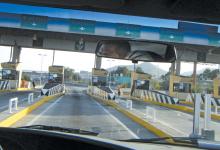The entire infrastructure investment programme in the United Kingdom - Europe’s second biggest economy - is at serious risk as the country begins the process of leaving the European Union
“During the next five years, GDP Growth in the UK will be half of what it was in the previous five years,” warned Alexander Jan, a director at UK-based infrastructure designer Arup. The value of the currency will continue to crash and “there will be a doubling in the cost of government borrowing”.
This is bad news f
The entire infrastructure investment programme in the United Kingdom - Europe’s second biggest economy - is at serious risk as the country begins the process of leaving the European Union
“During the next five years, GDP Growth in the UK will be half of what it was in the previous five years,” warned Alexander Jan, a director at UK-based infrastructure designer1419 Arup. The value of the currency will continue to crash and “there will be a doubling in the cost of government borrowing”.
This is bad news for a country which has a “mainly publicly-owned road infrastructure and very little private sector involvement”.
He believes that Europe’s big institutional investors like the EIB (European Investment Bank) and the EBRD (European Bank for Reconstruction and Development) “will now pull back from the UK” to focus on other EU member economies. This will make it ever harder for the UK’s local authorities to invest in infrastructure projects in a country that “has a highly centralised fiscal regime”.
Perhaps the solution will lie in more toll roads for the UK, asked Pedro Pinto of Ascendi. He outlined the success of electronic toll collection in Portugal, the sole EU state collecting tolls from all type of vehicles across its 2,900km of motorways.
With 95% of Portugal’s total motorway network tolled, the country is truly wedded to the concept of the ‘user pays’. Pinto said that mobile enforcement teams and more cross-border international cooperation are crucial if Europe wants to move in this direction and to police an effective tolling regime. He suggested that it is possible that the industry is planning and managing its road networks on the wrong basis altogether.
In a stimulating debate on “big data and the future of road infrastructure”, Invision Consulting’s Christos Koulouris said that “the road of the future will move away from being an asset” to something that is designed, built and managed more as “a public service”.
In the consumer sector, the customer is king. Brands spend millions of dollars on perception studies and high street retailers put huge emphasis on their customer care. Koulouris says the highway sector can learn from this. “As an industry, we are going to need more care of user and customer needs.” Does the new road go where people want it to go? Does it have the sort of service areas that users like, and are they in the right place?
“I think that the highway of the future will see us moving away from evaluating and managing roads under the traditional asset management model,” Koulouris said. “I can see us moving towards a service provision model.”
“During the next five years, GDP Growth in the UK will be half of what it was in the previous five years,” warned Alexander Jan, a director at UK-based infrastructure designer
This is bad news for a country which has a “mainly publicly-owned road infrastructure and very little private sector involvement”.
He believes that Europe’s big institutional investors like the EIB (European Investment Bank) and the EBRD (European Bank for Reconstruction and Development) “will now pull back from the UK” to focus on other EU member economies. This will make it ever harder for the UK’s local authorities to invest in infrastructure projects in a country that “has a highly centralised fiscal regime”.
Perhaps the solution will lie in more toll roads for the UK, asked Pedro Pinto of Ascendi. He outlined the success of electronic toll collection in Portugal, the sole EU state collecting tolls from all type of vehicles across its 2,900km of motorways.
With 95% of Portugal’s total motorway network tolled, the country is truly wedded to the concept of the ‘user pays’. Pinto said that mobile enforcement teams and more cross-border international cooperation are crucial if Europe wants to move in this direction and to police an effective tolling regime. He suggested that it is possible that the industry is planning and managing its road networks on the wrong basis altogether.
In a stimulating debate on “big data and the future of road infrastructure”, Invision Consulting’s Christos Koulouris said that “the road of the future will move away from being an asset” to something that is designed, built and managed more as “a public service”.
In the consumer sector, the customer is king. Brands spend millions of dollars on perception studies and high street retailers put huge emphasis on their customer care. Koulouris says the highway sector can learn from this. “As an industry, we are going to need more care of user and customer needs.” Does the new road go where people want it to go? Does it have the sort of service areas that users like, and are they in the right place?
“I think that the highway of the future will see us moving away from evaluating and managing roads under the traditional asset management model,” Koulouris said. “I can see us moving towards a service provision model.”










